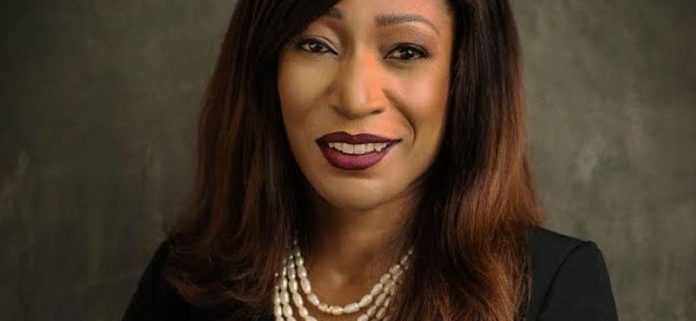Meet Ifeoma Dozie: The Marketing Maestro

All About Ifeoma Dozie
A result-oriented Marketing Director with more than fifteen years of experience, skilled in shaping and implementing commercial and business strategies to deliver high-quality integrated solutions. Ifeoma Dozie is currently the Director, Marketing and Communications, Sub-Saharan Africa at Mastercard company, where she oversees the company’s strategic communication.
Well-versed in all aspects of traditional and digital marketing and driving business to deliver exceptional levels of ROI, Ifeoma has extensive international work experience across different categories within the drinks sector. She was regional Marketing Officer at The Heineken Company where she was responsible for the development of strategic business plans and marketing capabilities for key markets within the Africa region.
She also improved the equity growth, sales performance and profitability of the non-alcoholic drinks category in line with the company’s overall profit and portfolio objectives during her time as Marketing Manager – Non Alcoholic drinks at The Heineken Company, Nigeria. A position she held for more than four years.
An alumnus of King’s College, London where she bagged a Master’s degree in International Business Law. Ifeoma obtained her Bachelor of Laws degree (LL. B.) from the University of Bristol.
What are your thoughts on why financial literacy is particularly important for women in Africa?
The world is full of brilliant possibilities, but they are not always open to everyone. Too much of our world is designed without women in mind and without women involved. Often, the data we rely on to create the future does not capture and represent women’s experiences, and we fail to spot the barriers that prevent women from seizing the possibilities we create.
Additionally, the COVID-19 pandemic is having a disproportionate impact on women entrepreneurs around the world, considering their overrepresentation in sectors hardest hit by the economic downturn, the pronounced digital gender gap in an increasingly virtual world, and the mounting pressures of childcare responsibilities.
The 2020 Mastercard Index of Women Entrepreneurs (MIWE), our report which highlights the vast socio-economic contribution of women entrepreneurs around the world, noted this growing inequality, with 87% of women entrepreneurs saying they were adversely affected by the pandemic. In Ghana, for instance, a sectoral breakdown reveals that a large proportion of women-owned businesses (85.1%) operate in highly impacted sectors compared to 50.5% for men. In Uganda, 61% of women-led small businesses failed to generate income even as lockdown measures were eased.
Proposals cross your desk every day, why was it important for Mastercard to support a TV series like the Smart Money Woman, taking a chance on a first time producer?
The Smart Money Woman series aligns with Mastercard’s objectives regarding women inclusion, financial inclusion and security. It made sense to collaborate with the show in order to create awareness, inform and educate African women across all industries and careers.
In addition to this, Mastercard also has a commitment to support small businesses. As part of our global commitment to connect 1 billion people to the digital economy by 2025, we have a dedicated focus on including 25 million women entrepreneurs.
Small businesses have an outsized impact on the economies of African countries, providing a livelihood for many while advancing financial inclusion of women to reduce poverty and boost prosperity. The 2020 MIWE report shared some highlights as well – it recorded a strong representation of women entrepreneurs in countries such as Malawi, Angola, and our very own Nigeria. This was achieved despite the economic and social challenges facing their entrepreneurial ecosystems.
Additionally, the report highlights that African women business owners are not afraid of risk-taking while expressing their innovativeness, individuality and creativeness.
The potential is already in Africa, and at Mastercard, we are committed to leveraging our partnerships to help, inform and enable small businesses to sustain themselves, especially during this pandemic.
Creating an enabling environment for SMEs to thrive and participate more actively in African economies, particularly in the era of 4IR, is therefore essential for promoting and boosting sustainable and inclusive economic growth, creating employment, nurturing innovation and reducing inequality across the continent.
What impact does Mastercard hope this partnership will have on African women?
With this partnership, we hope to see a lot more progress in women’s, financial literacy and security. This partnership is an opportunity to provide a platform for women in Africa to thrive in the digital era.
A recent Mastercard study revealed the exponential growth of e-commerce in Africa – with 81% of people surveyed in Nigeria, 72% in Tanzania, 68% in Ivory Coast, and 79% in both Kenya and Ghana saying they have been shopping more online since the pandemic began. This represents a number of opportunities for women thriving in our ‘new normal’, particularly in online shopping and digital commerce.
This project can also tackle barriers: often, we fail to see how inequality and exclusion are holding women back from seizing the possibilities we create, resulting in a world where too many things do not work as well as they should for women.
As a connected ecosystem we must all embrace diverse perspectives, certainly including those from women too, because that is when we can unlock ideas that are powerful enough to change the world and the narrative of Africa regarding gender inequality.
When we embrace diversity, it means that we will be connecting individuals, businesses and economies globally through the power of our networks.
Challenging the status quo is not an easy task but we cannot rely on traditional methods. To make real impact, we need to pursue bold thinking and serious action. This can be achieved by leveraging our greatest strength: powering connections through partnerships and collaborations. We need to be more creative and develop pioneering approaches in order to make an impact that reflects transformation.
Unlocking the potential in every person across all parts of their lives is what Mastercard is committed to doing.




Leave a Reply
Want to join the discussion?Feel free to contribute!